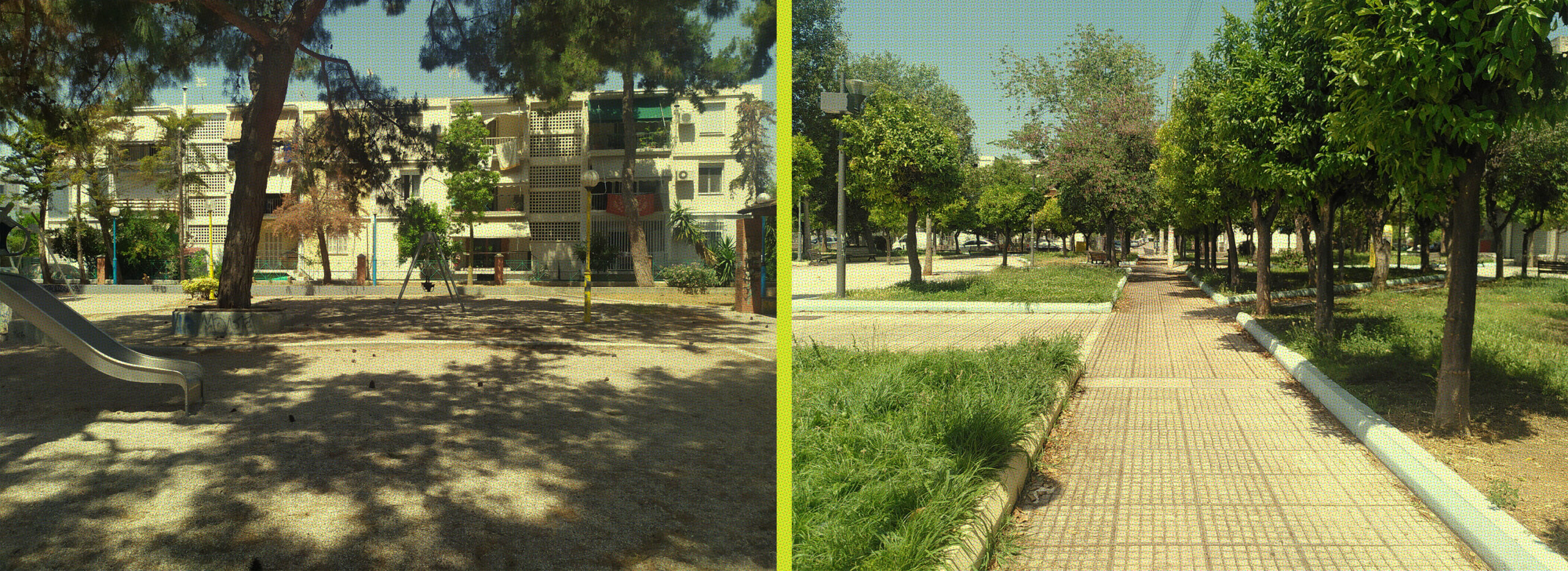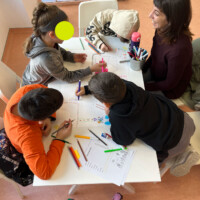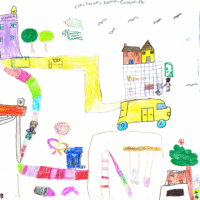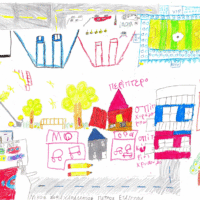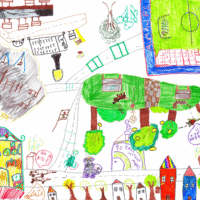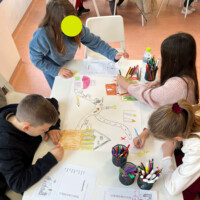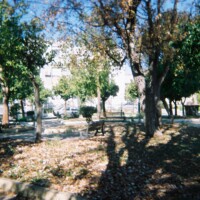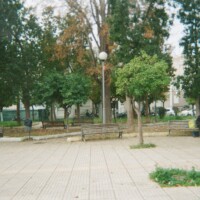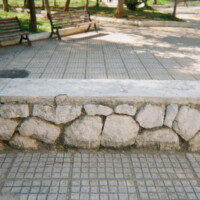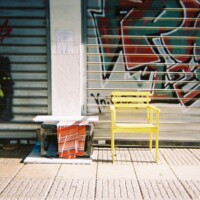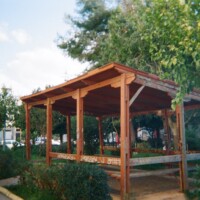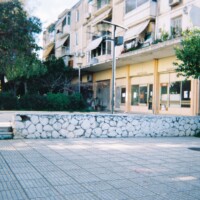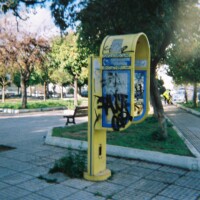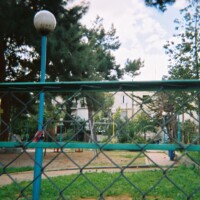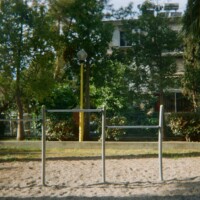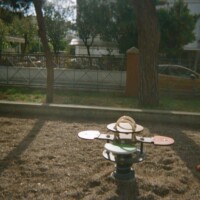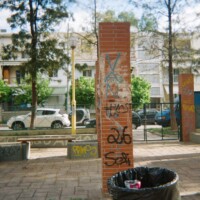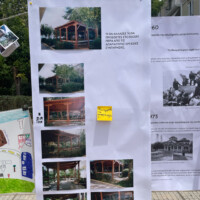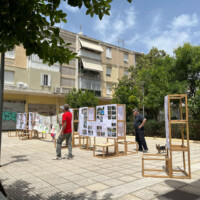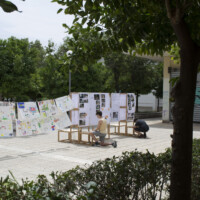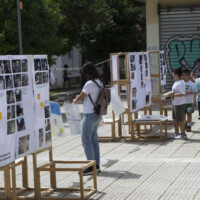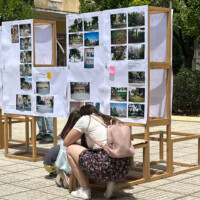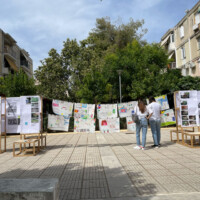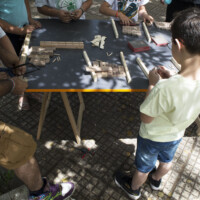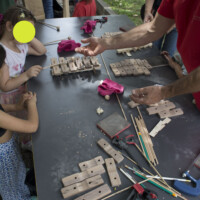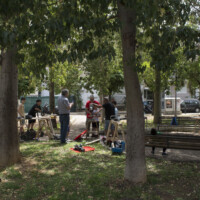Introduction
The square and the playground within the Social Housing Complex of Egaleo is an open green space situated in a densely populated, low-income district approximately 1 km from the city center. Encircled by residential blocks, it serves as a central point in a network of smaller green areas interspersed among other housing units. These spaces act as communal gathering spots for a multicultural neighborhood comprising residents from Pakistan, Syria, Greece, and second-generation migrants from Albania.
Notably, the park functions as the social nucleus of the area. The ground floors of the surrounding buildings host various community facilities, including a cultural association dedicated to traditional Cretan music, another focusing on traditional apparel, and a social center for the elderly. Consequently, the park remains active throughout the day and night, frequented by individuals of all ages, members of cultural associations, and students from the nearby primary school. It also serves as a venue for cultural events. However, the area has suffered from a lack of proper maintenance and redesign over recent decades, leading to insufficient urban amenities that fail to meet the users’ needs.
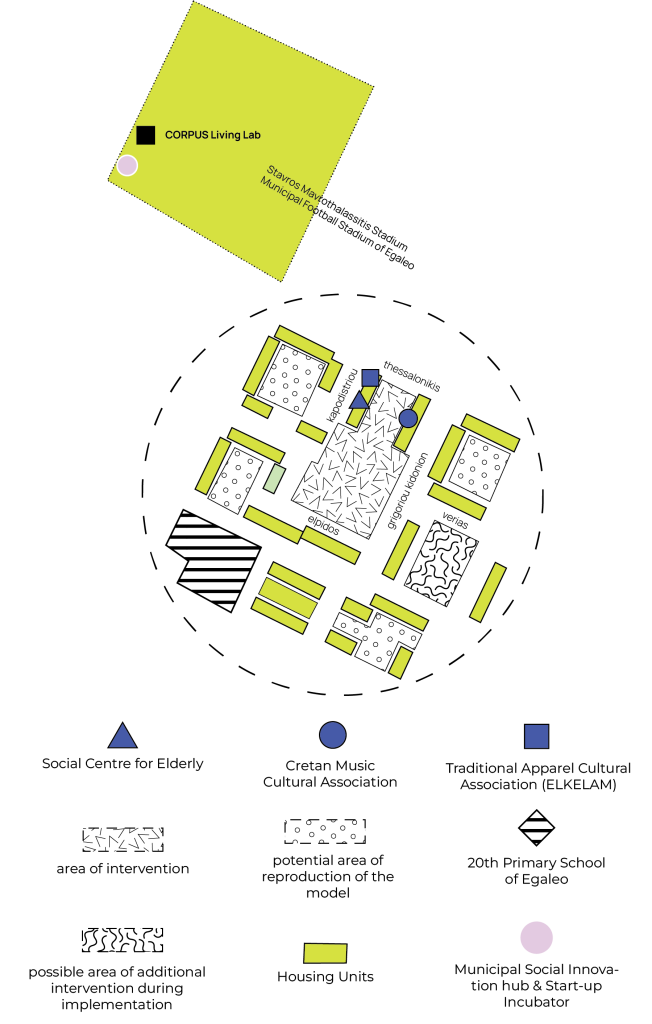
community engagement
Episode 1: Approaching the local community
The CORPUS research team—comprising Open Lab Athens, the Municipality of Aigaleo, and FBW U+A—initiated community engagement by collaborating with the nearby 20th Primary School of Aigaleo and the 2nd Social Center for the Elderly. By involving both youth and elderly participants in two distinct series of workshops, the researchers established a presence in the neighborhood and introduced the project’s concept to the broader community through family discussions.
This approach also entailed a deliberate deceleration of traditional research methodologies at the community level. Prioritizing the development of educational chains in urban pedagogy, the team allocated time for the community to explore various socio-spatial aspects and qualities of public spaces before introducing concepts of circularity and upcycling.
School Workshop 1
Beginning in February 2025, we embarked on a meaningful journey of interaction with 100 students from the 20th Primary School of Aigaleo through two workshops centered on urban pedagogy.
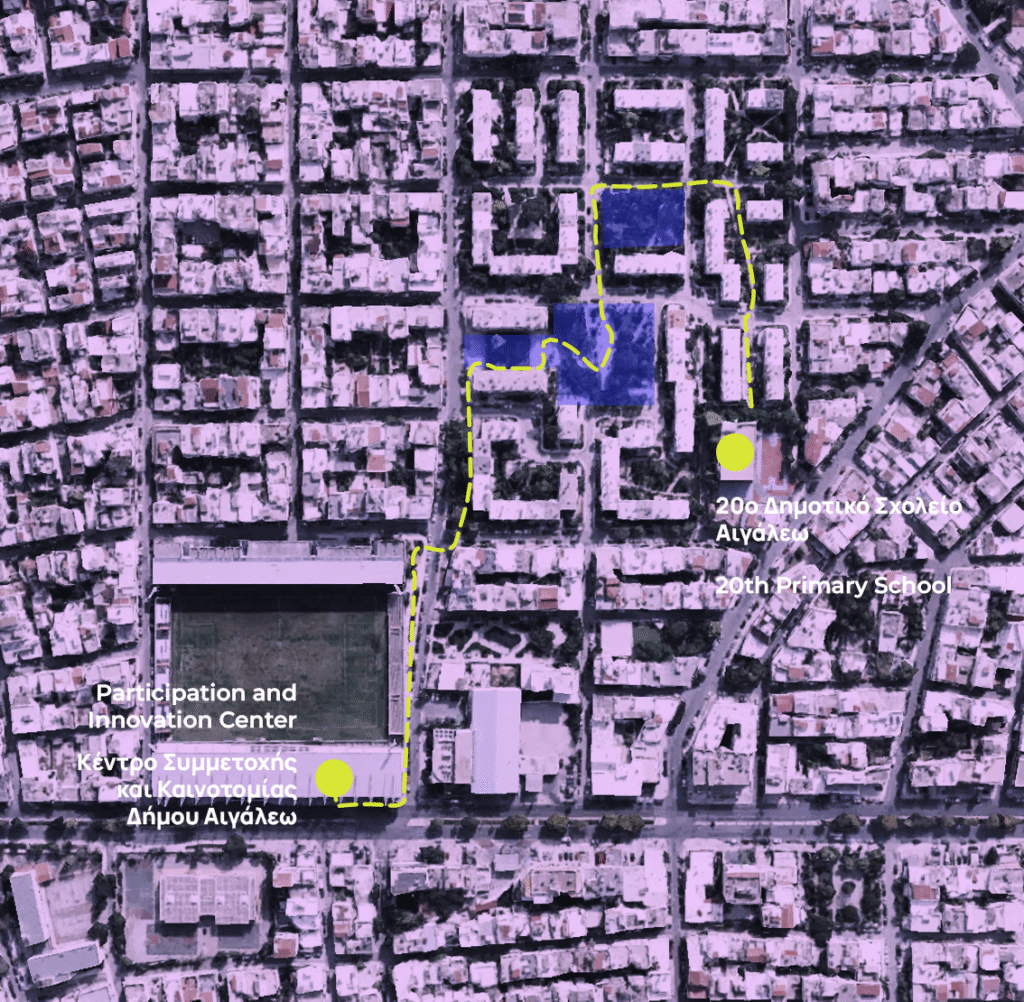
Our initial activity involved exploring the neighborhood’s public spaces, culminating at the Municipality’s Participation and Innovation Center. Following a brief presentation and discussion on the wealth of information that maps can convey, we collectively designed maps inspired by our explorations.
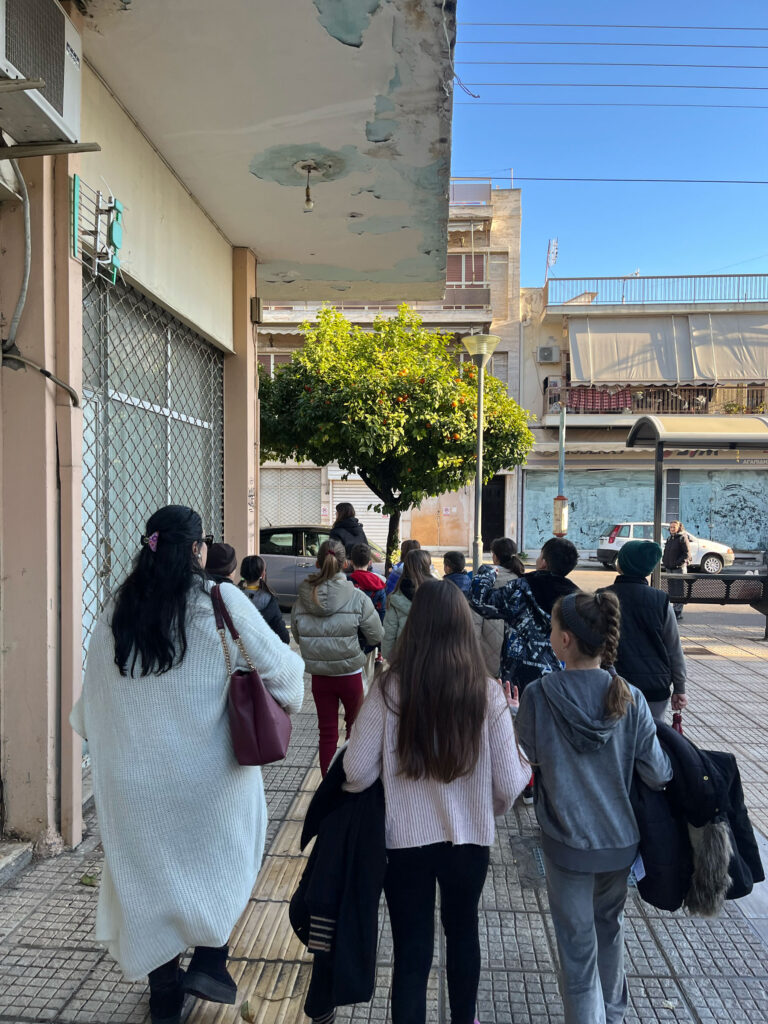
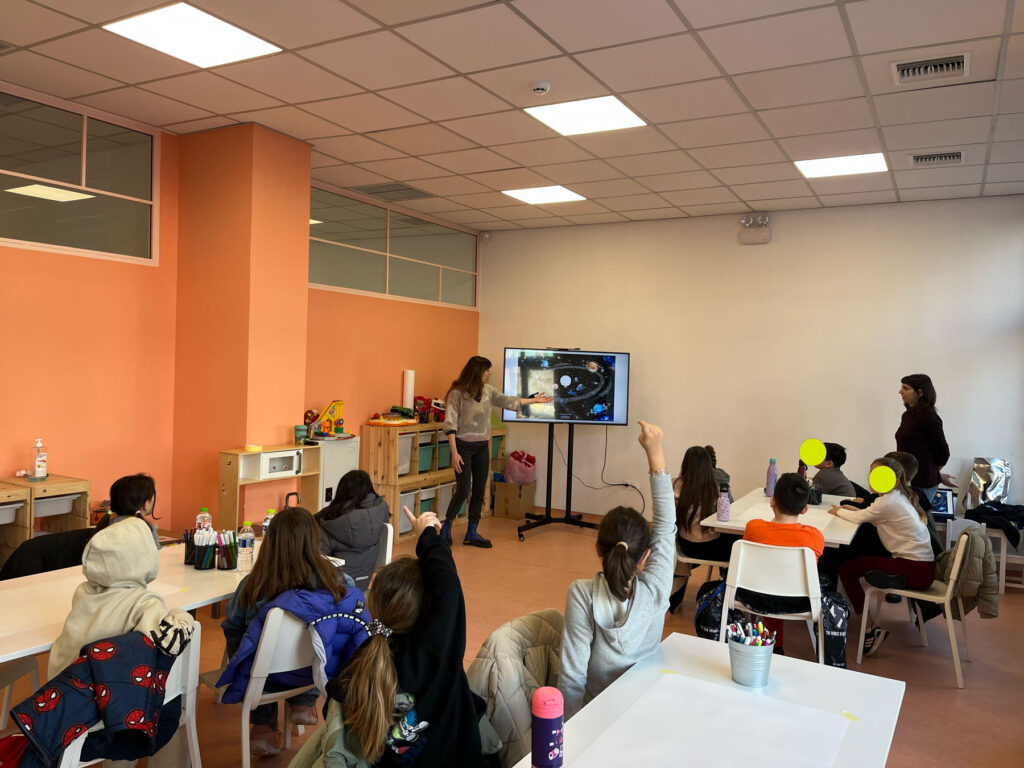
Walk in the neighbourhood and presentation of peculiar maps from different cultures and time periods
Collective drawing of the maps of the neighbourhood and a sample of the result.
School Workshop 2
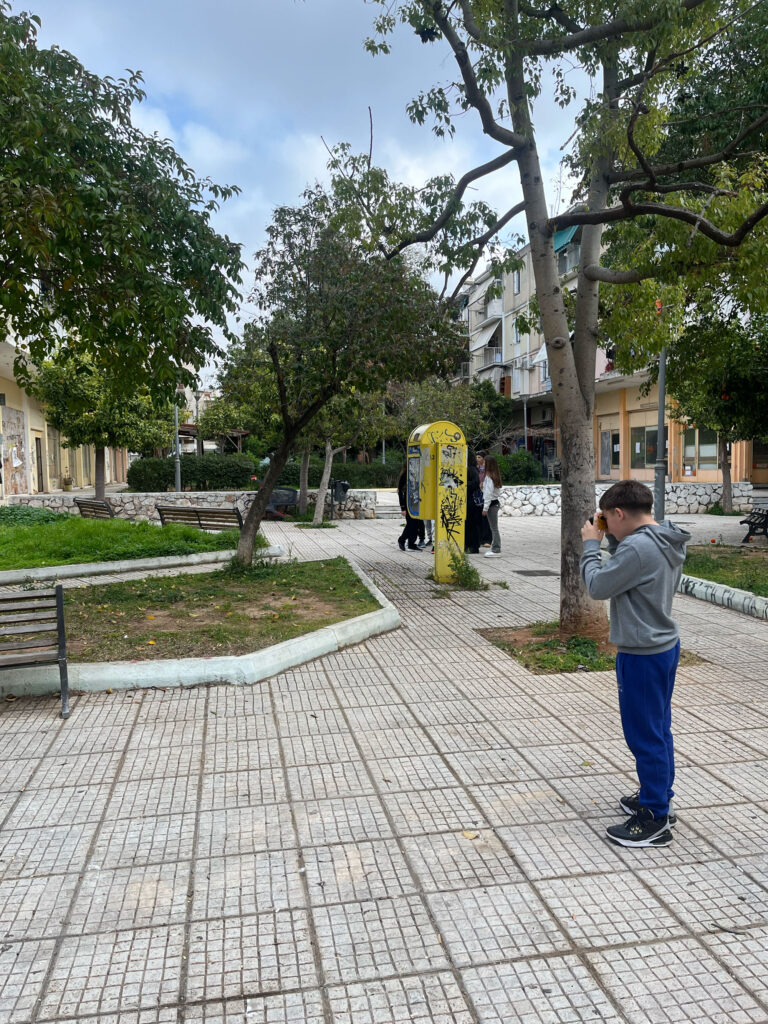
The second session featured a photo-walk using analog cameras around the neighborhood square and playground. This exercise honed our observational skills in public spaces, capturing in a single click elements that stood out or aspects we wished to change.
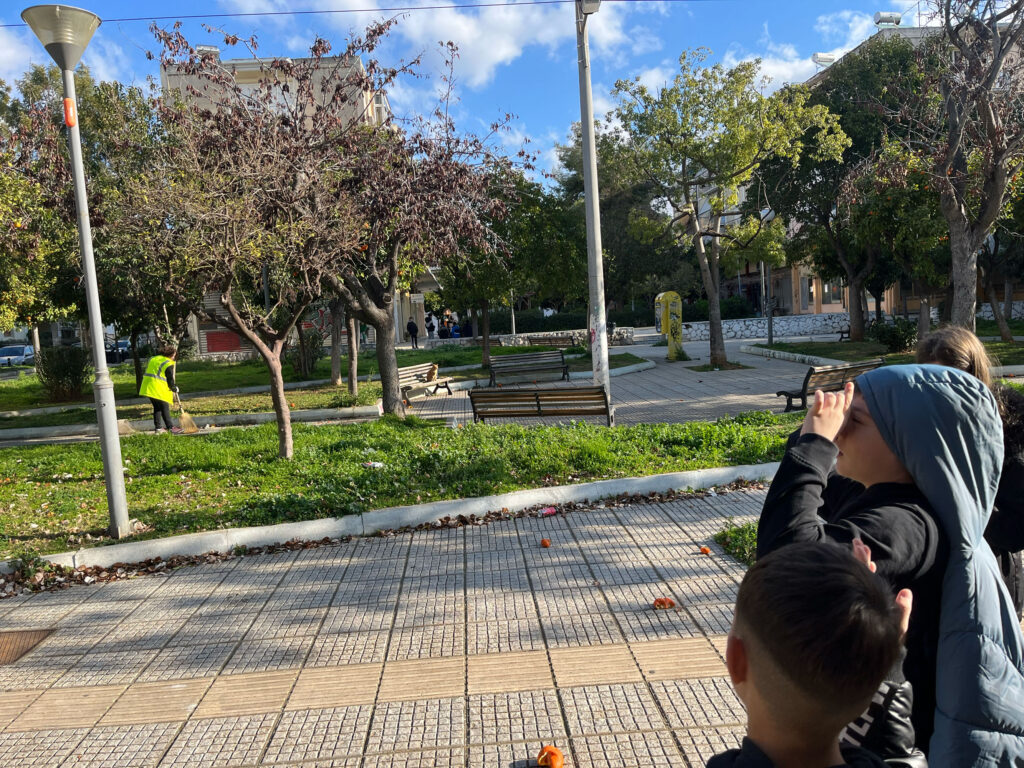
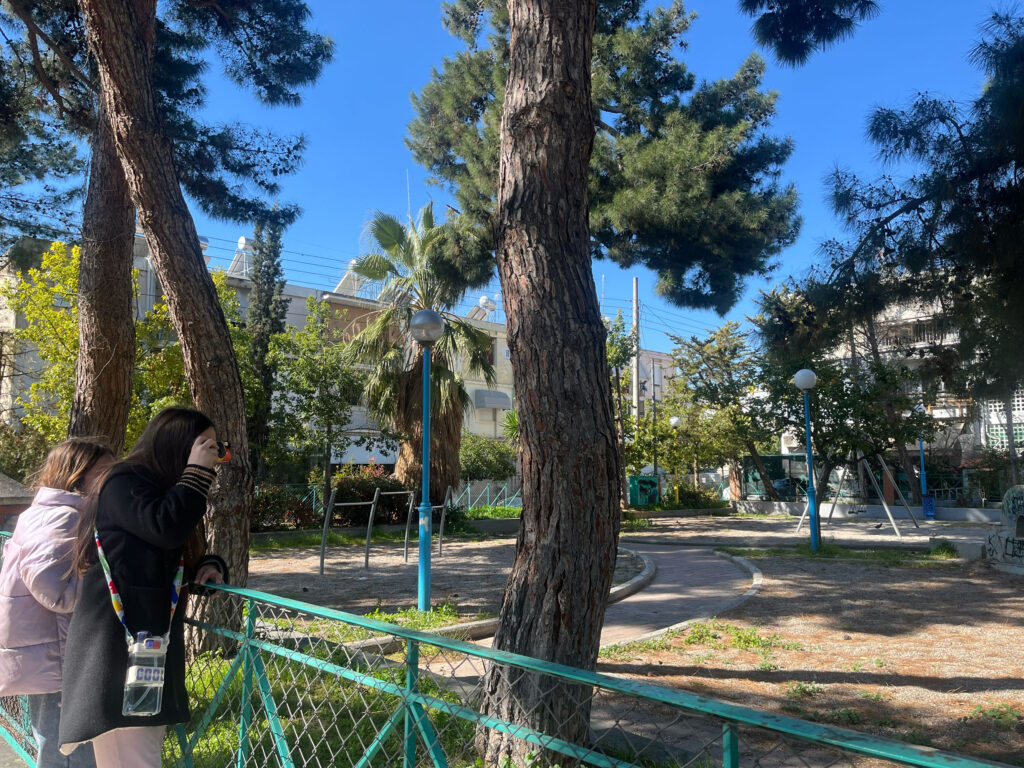
Students focused on various areas within the two public spaces, engaging in in-depth discussions with the research team about deficiencies in equipment and maintenance.
Here is a selection of the students’ photographs, offering their perspectives on public space.
First Encounter with the elderly
n Thursday, November 14th, the Open Lab Athens team and the Municipality of Aigaleo held the first community engagement event with seniors from the 2nd Social Centre of the Municipality. Located within the broader intervention area of the CORPUS project, this Centre is a key stakeholder expected to play a pivotal role in future urban interventions in the park.
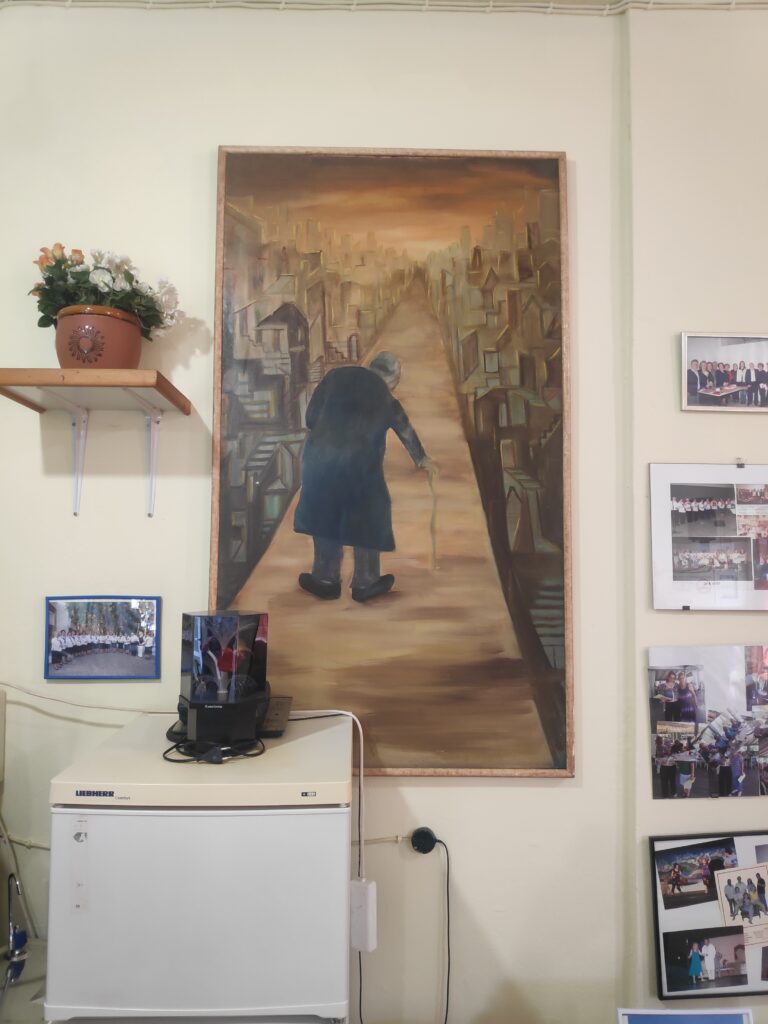
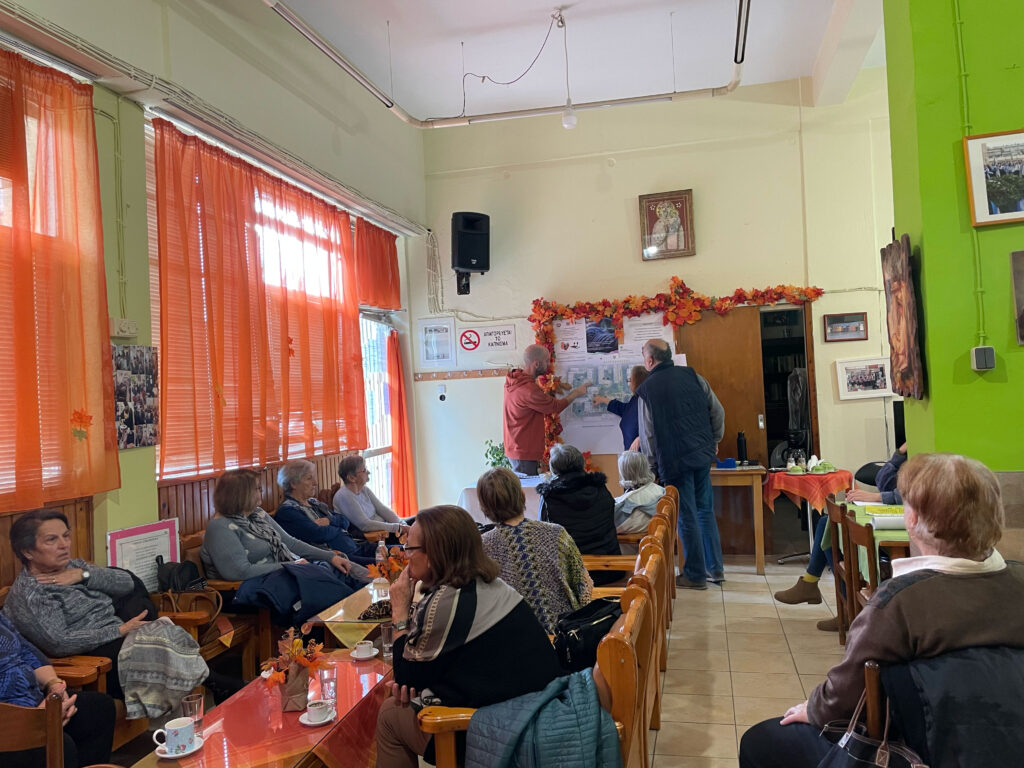
The two-hour workshop brought together 15–20 participants and followed this structure:
Introductory Presentation: The Municipality introduced the project and its objectives in accessible language.
Open Discussion: Participants engaged in an informal dialogue about the challenges faced by the neighborhood and the wider area.
Mapping Activity: Participants explored their surroundings and provided valuable input for the research team. Using an A0 map of the intervention area, they marked key points—identifying places in need of maintenance or urgent attention.
Ethnographic workshop
On April 9th, 2025, the CORPUS research team conducted an ethnographic workshop with six members of the Seniors Social Centre at the Municipality’s Participation and Innovation Hub. The session aimed to co-create a timeline of the neighborhood’s history by mapping the various population groups that have lived in the social housing complex since the 1960s, alongside personal childhood memories.
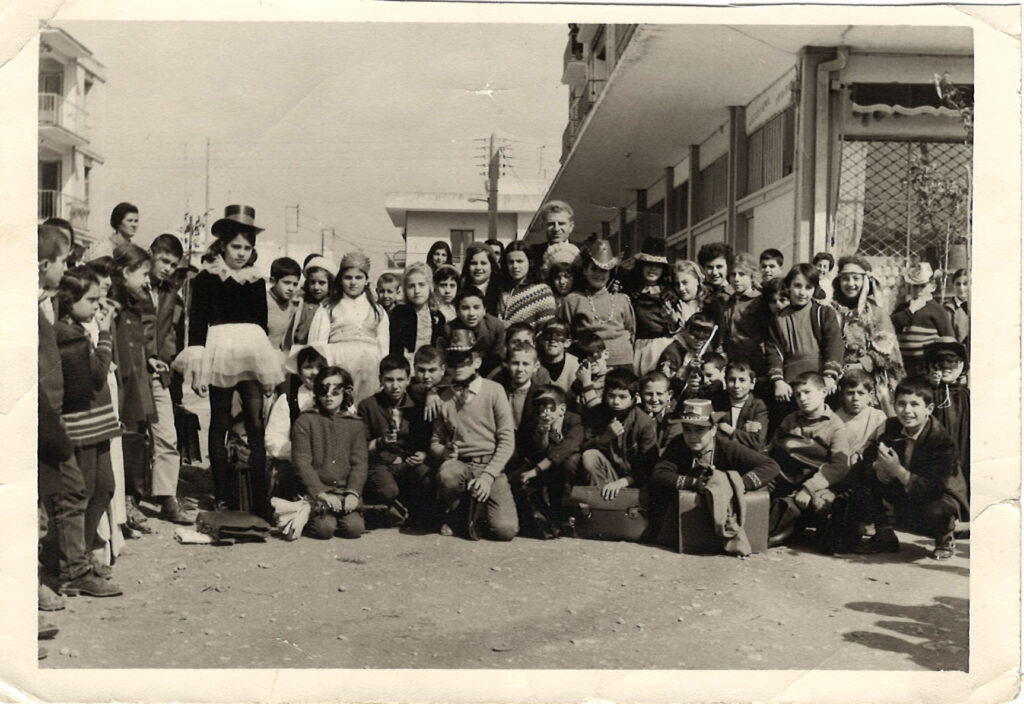
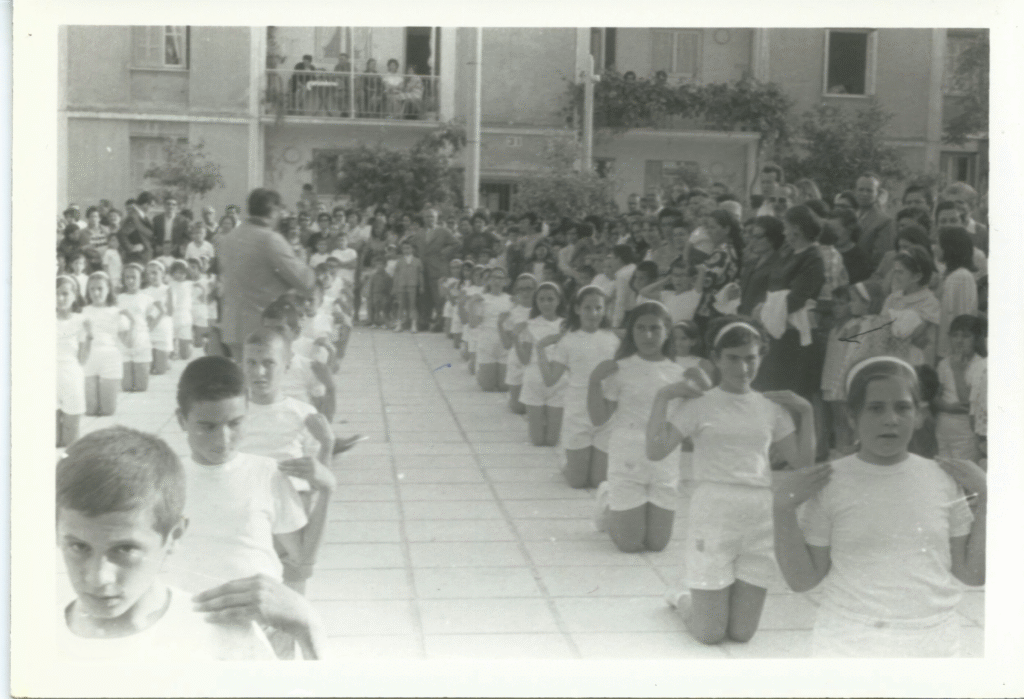
Αthletic Demonstrations and Carnival festivities in the public square (Personal Archives of Katsimardou and Ioannidou)
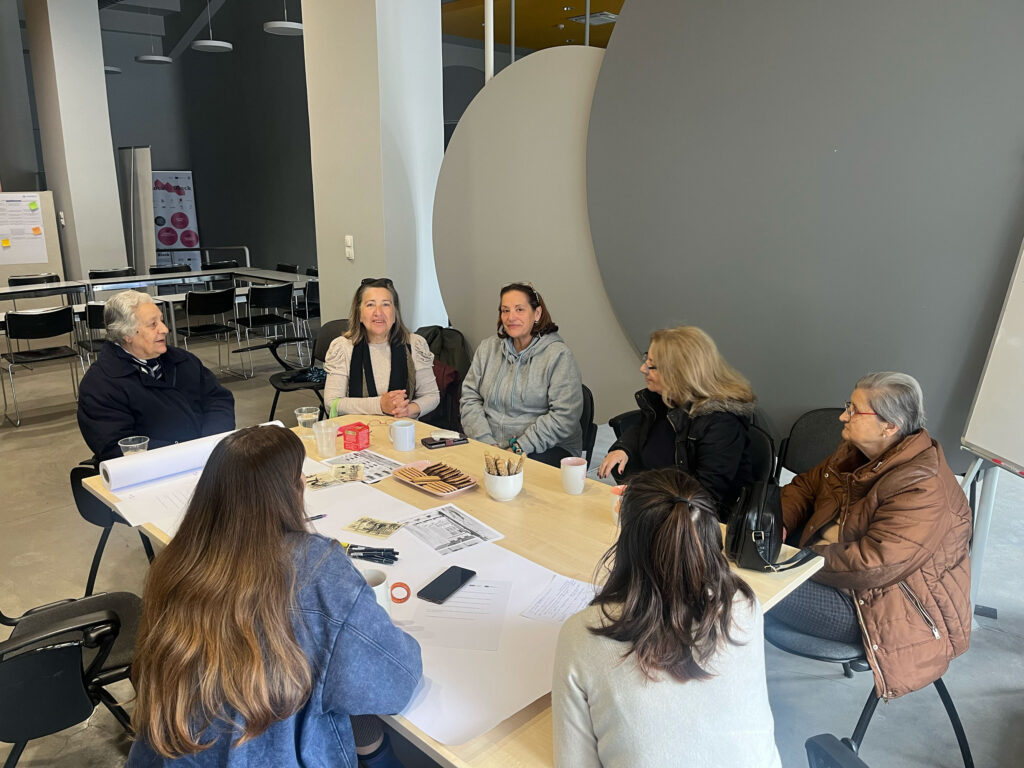
Key themes that emerged included:
– Collective community action and renovations in public spaces.
– The use of the ground floor of the square by the 11th Primary School until the late 1970s.
– Internal and external migration waves shaping the area’s social geography.
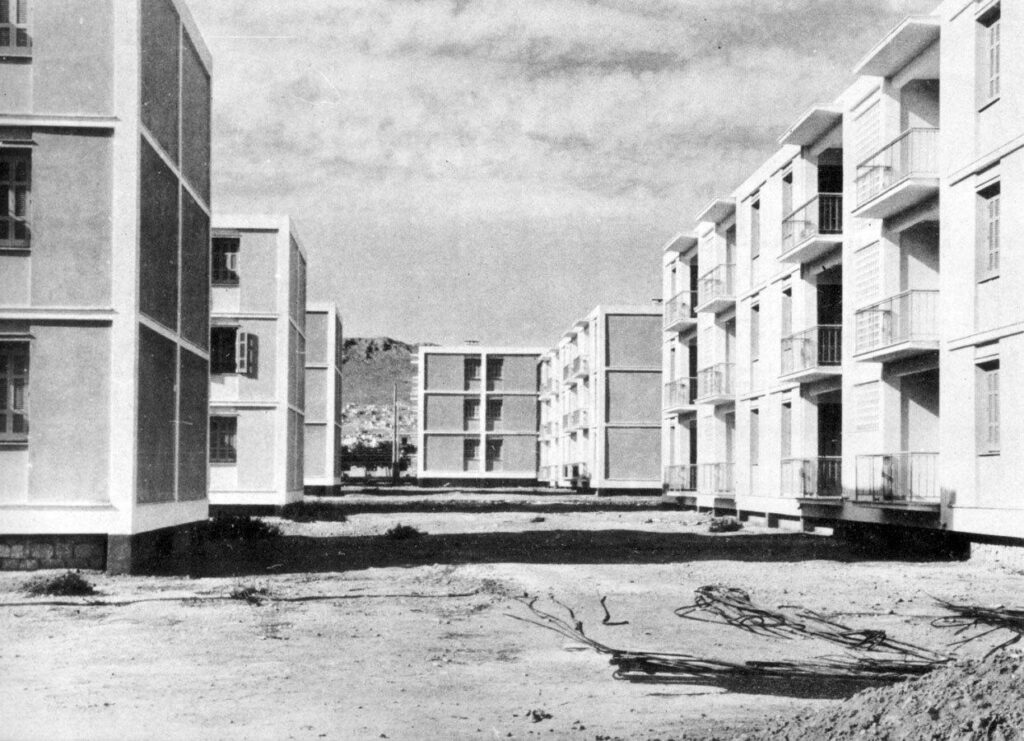
The construction of the Social Housing Complex in the end of 1950s (source: https://www.doma.archi/index/projects/sygkrothma-katoikiwn-sto-aigalew)
Public Event: An exhibition about the square and parallel workshops

What is a neighborhood square?
It is the trees. It is the benches. It is the passersby and the animals that roam around it. It is the closed shops and the spaces that remain alive. It is a phone booth that no longer works and the background of a selfie taken with a mobile phone. It is the memories of a bygone era and everything that happens in the present tense. It is everything that is yet to come.
The day of action in the public space tries, through the question “what is the square?”, to open a dialogue.
Through the eyes of the students of the 20th Primary School and through the memories of the older residents of the neighbourhood, the past and present of the public space are presented — a space experienced daily but often overlooked.
So today is a good opportunity for all of us to come together, to play, to create, to imagine how we want the square to be in the future — or simply to exist in the public space that belongs to us.
[From exhibition’s introductory description]
The insights and materials gathered over six months of community interaction culminated in a public pop-up exhibition on May 24th, 2025, in the neighborhood square. The event, except the exhibition, featured two parallel workshops and a dedicated space for open expression.
Students’ vibrant maps were displayed alongside black-and-white childhood photographs from the elderly, while student-produced analog photographs were curated into sections reflecting specific public areas—posing questions about future possibilities, needs, and aspirations.
Originally developed by LUDD Lab, the modular infrastructure had been designed in previous projects and was temporarily installed for the event. Learn more about The Clouds & Box for Expression
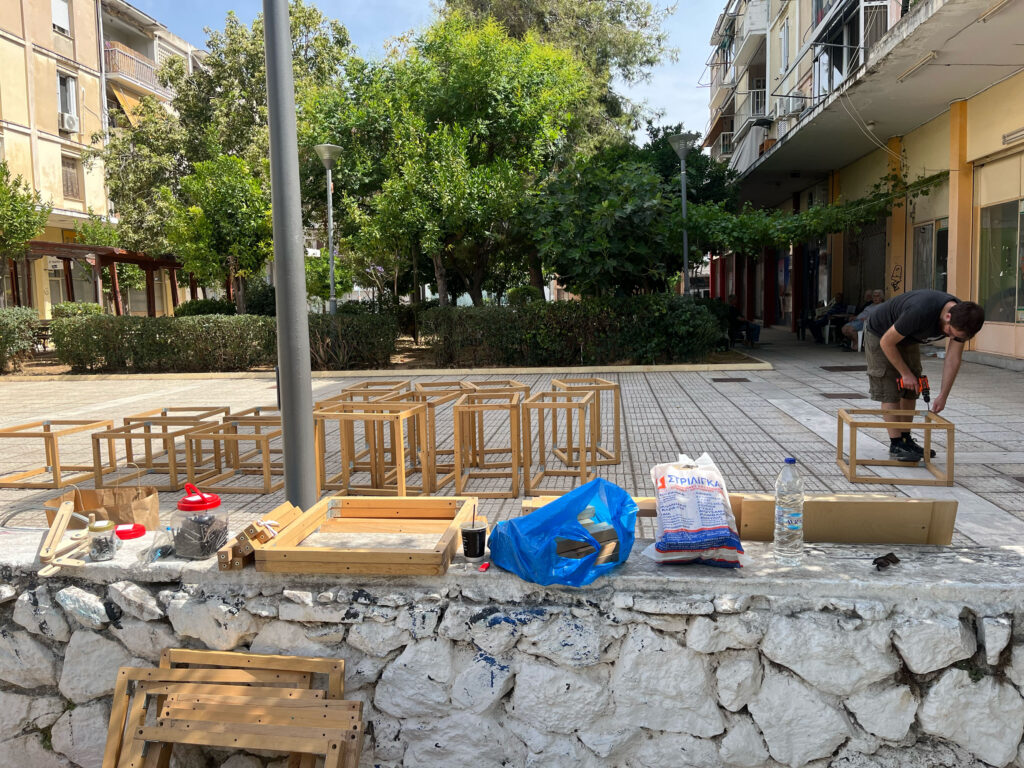
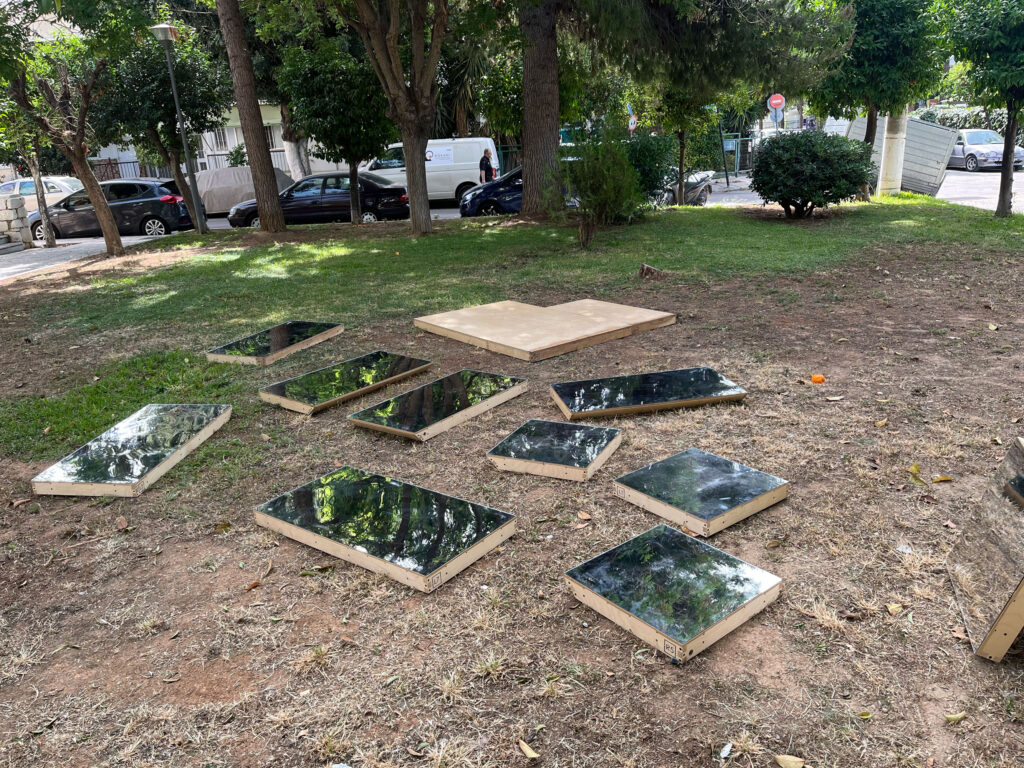
The Exhibition
The Xylophone Workshop by Rokani Social Cooperative
The aim of the workshop was to offer the young participants (40 children aged 7–11) an introduction to the world of woodworking and the joy of creation. The event began with icebreaker games designed to enhance interaction and cooperation among the children, creating a pleasant and team-oriented atmosphere. During the workshop, they used tools such as sandpaper, hammers, drills, and many others, allowing the children to become familiar with their safe use, always under the supervision of the workshop facilitators. Then, the children took action: they sanded wood, drilled holes, cut wooden slats, and, in the end, applied oil to their xylophones to bring out the beauty of the wood. The day ended with melodies from the xylophones and lots of smiles!
The Public Toilet of Thoughts in the square
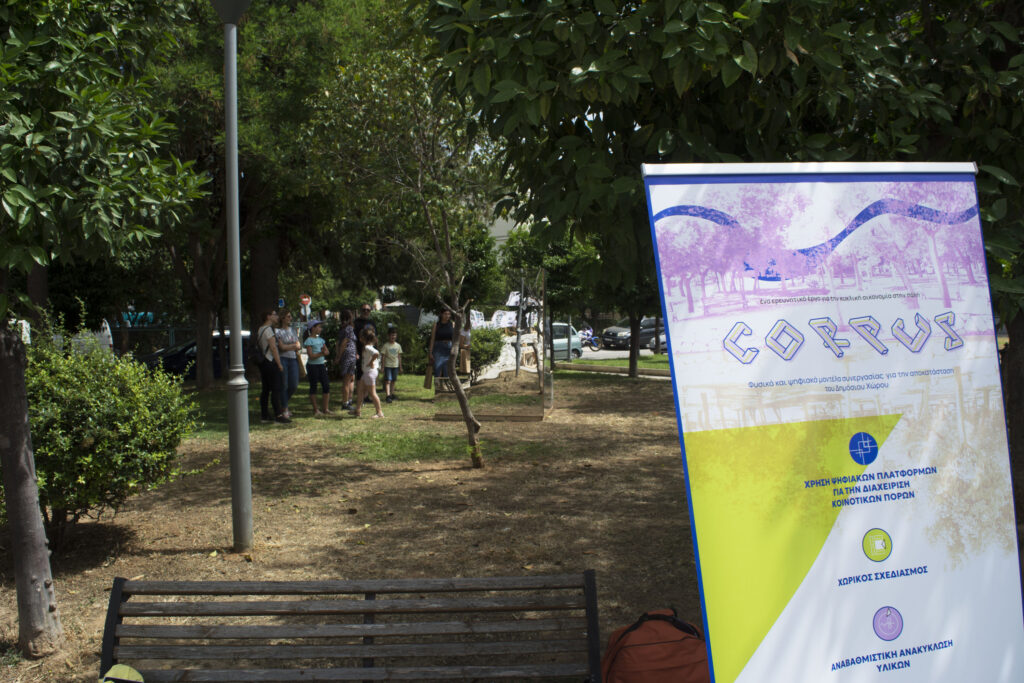
This mobile installation Box for Expression created a space for storytelling and experience-sharing in the city’s public realm. Styled as a “Public Toilet of Thoughts,” it encouraged passersby to respond to prompts about the square’s uses, desires, and memories—offering a safe and creative space for expression.
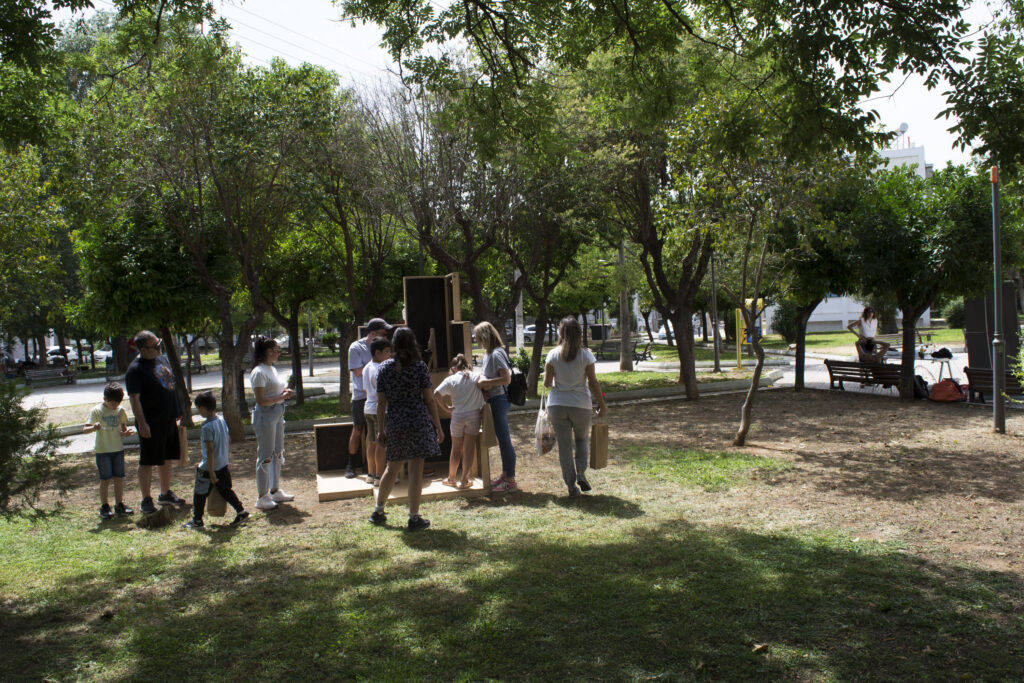
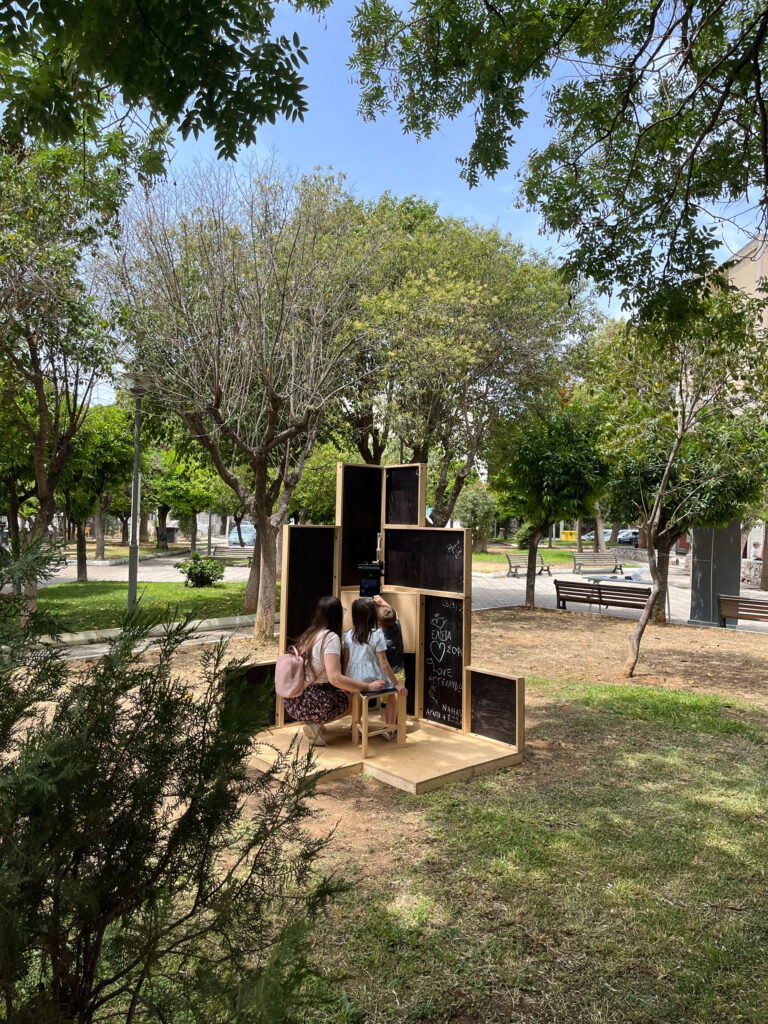
Grafting workshop by Mr. Christos Koulelis
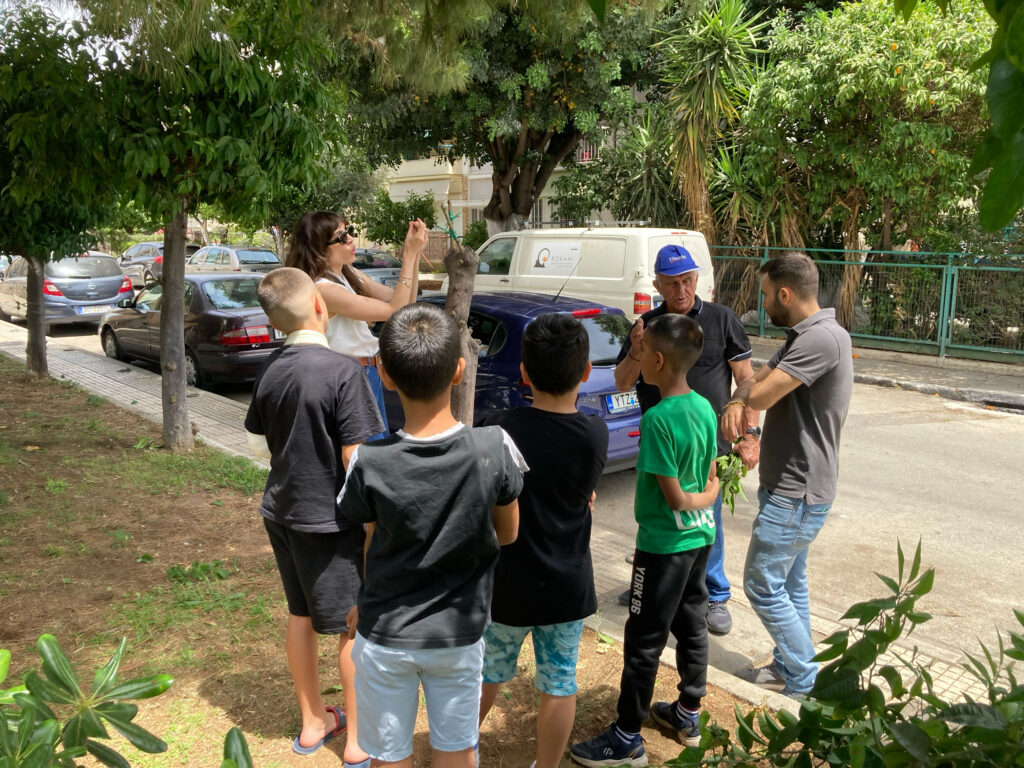
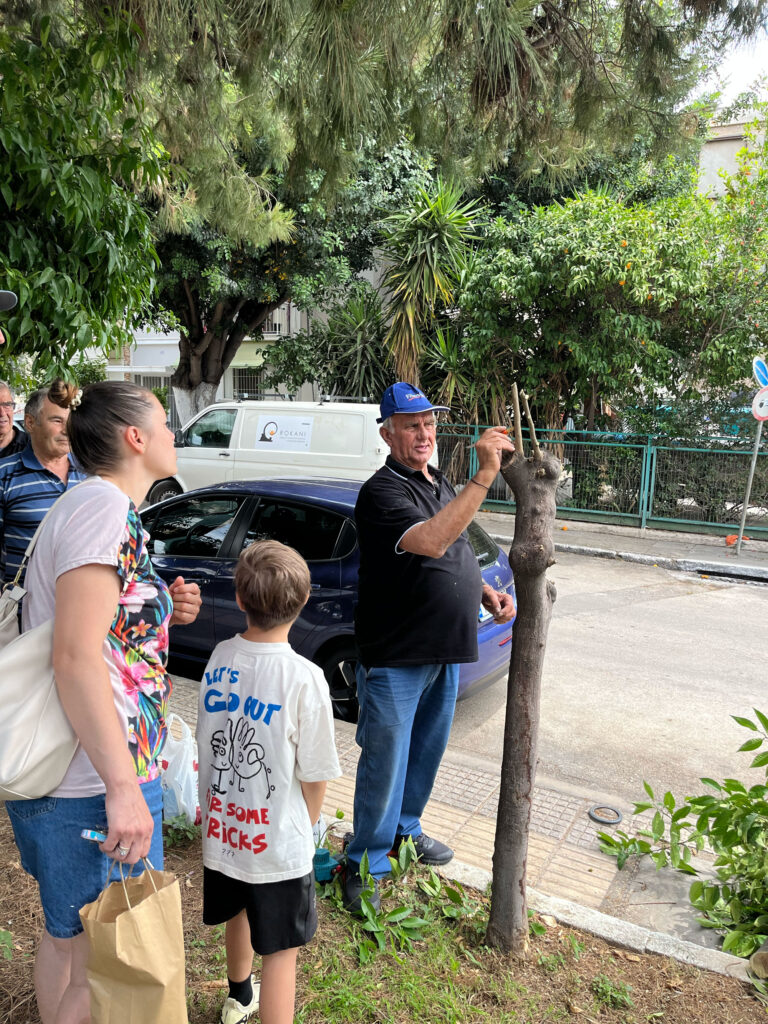
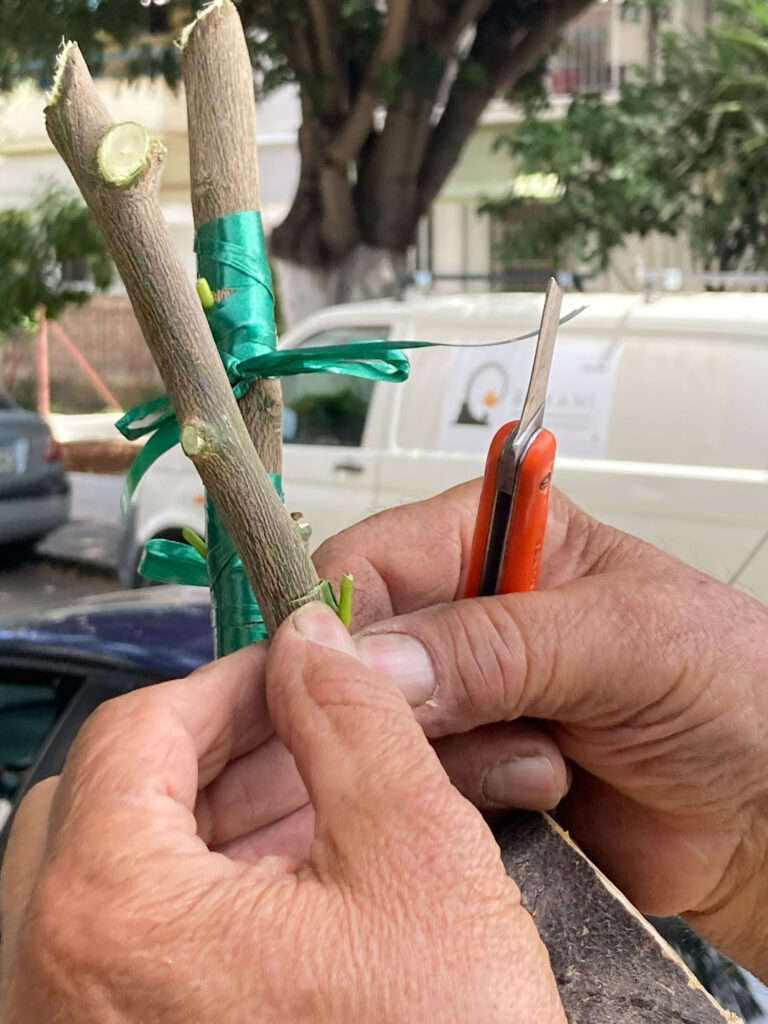
Concluding thoughts
The public event at the Social Housing Complex square embodied CORPUS’s participatory methodology. Rooted in participatory action research, the exhibition and the parallel workshops, fostered intergenerational dialogue—inviting children and seniors to reflect together on the shared space’s past, present, and future.
This series of activities is grounded in the belief that reclaiming and activating public space is a gradual process that requires time, trust, and collaboration. By engaging key community actors who influence broader participation, the initiative helps shift dominant behaviours and shape new narratives around collective urban design and co-creation.
Special thanks to Giorgos Karategos, Konstantinos Zves, Gregory Tsardanidis & Antonia Sioula for their invaluable help during the day of the public event.
constructing the physical space of the urban living lab
Episode 2: A community fab lab in the making [coming soon]

